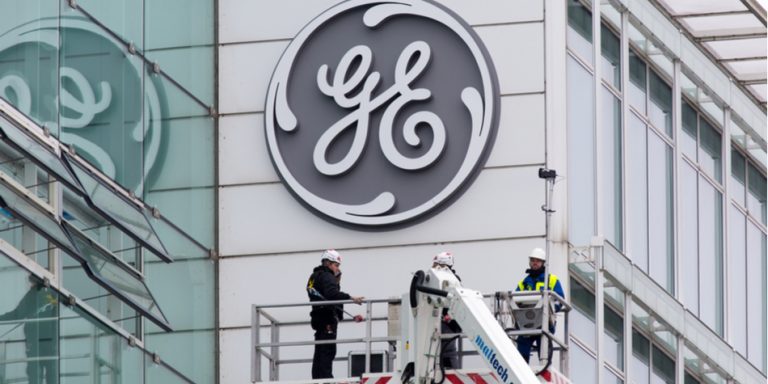General Electric Company (NYSE:GE) stock fell Jan. 16 after the company revealed it will have to take a huge charge over long-term care insurance.
The $6.2 billion charge, $7.5 billion when the new tax cut law is factored in, will come as the GE Capital unit puts $15 billion into the policies to cover losses.
Long-term care policies were popular in the 1990s. But the costs of care have exploded, as has the length of care. A single policyholder struck down by a disease like Parkinson’s could cost millions of dollars in nursing home care over their lifetime after paying just thousands in premiums.
The announcement shocked analysts, and made a fool of others, including me. I had written just a week ago that the bottom seemed in on the company, and that its stock offered value.
Wrong on GE Stock
The company books are a minefield, filled with unexploded bad business decisions that could go off at any moment.
Our Aaron Levitt was closer to the mark. “Don’t be fooled,” he wrote of the early-year gains in the stock. In addition to GE Capital, he said GE Power could still roll over, as demand falls.
Former CEO Jeff Immelt had pushed the 2015 purchase of France’s Alstom’s power division, for $10.7 billion, as GE’s “best deal of the century” because of Alstom’s backlog of orders. It turns out to have been one of the worst deals of the century, by any large company. GE must now negotiate huge layoffs with the French government.
CNBC host Jim Cramer has spent the last three months lamenting his own purchase of GE stock and defended the stock again January 16, saying the losses from insurance are tapering off and $70 per barrel oil has to help Baker Hughes, a GE Company (NYSE:BHGE), which is up 20% on the year from under $32 per share to over $37.
Immelt’s accounting methods, however, could still sink the stock further, as the company adjusts back to generally accepted accounting principles-based accounting, he said.
A statement from current CEO John Flannery on the latest charge only called it “deeply disappointing” and said GE Capital’s contributions to the company’s dividend would be suspended for the “foreseeable future.” Even though the unit’s contributions to GE’s dividend is ending, the dividend itself does not seem under threat due to profits elsewhere, like jet engines and healthcare.
Next Shoe To Drop for GE Stock
The next shoe to drop could be GE’s membership in the Dow Jones Industrial Average
, which is very likely to happen now that General Electric is thinking about a break up of its parts. That would be huge if it happens — GE has been part of the index since it was launched in 1896.
The Dow has been exploding over the last year. And the gains have accelerated this month, with the Dow already up 4.4% and set to leap at the open. The average was below 20,000 at the start of 2017 and topped 26,000 as trading opened January 16. GE is down 40% in that time.
Critics charge that the Dow is not a “real” index and they are right. Companies are moved into the average when they’re hot, and moved out when they cool off, to give the impression of a constantly rising market.
Still, having the last “original” Dow stock fall off the average is going to be painful. The question is whether it can be prevented at this point. The move would be certain to send GE falling further, as funds tied to the Dow sell.
Bottom Line on GE Stock
JP Morgan Chase & Co. (NYSE:JPM) analyst Stephen Tusa wrote last week that GE still has room to fall and he has turned out to be prescient. He saw Rich Laxer, the head of GE Capital, leaving the company as a red flag, and that’s what you should have on the stock.
If you’re still in it, sell. If you’re not in it, avoid it. It’s a falling knife in a rising market.
[This story has been edited to reflect General Electric’s potential breakup.]
Dana Blankenhorn is a financial and technology journalist. He is the author of the historical mystery romance The Reluctant Detective Travels in Time, available now at the Amazon Kindle store. Write him at danablankenhorn@gmail.com or follow him on Twitter at @danablankenhorn. As of this writing he owned no shares in companies mentioned in this story.

